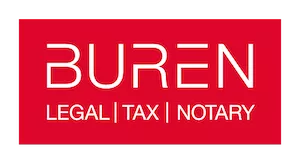- within Tax topic(s)
- in United States
- with readers working within the Media & Information industries
- within Privacy, International Law and Finance and Banking topic(s)
Introduction
For Dutch companies expanding into Asia, the Netherlands–Hong
Kong corporate structure is a well-established framework. A classic
example is a Dutch BV using a Hong Kong company (HK Co) to contract
with a Chinese manufacturer. While this structure remains relevant,
the focus has shifted from tax optimisation to demonstrable global
compliance and objectively verifiable business functions. This
article briefly explains the modern principles for a compliant
structure that aligns governance with predictable tax
treatment.
The Hong Kong Framework: The Principle of
Territoriality
Hong Kong operates on a territorial source principle, taxing only
profits that arise in or are derived from Hong Kong, or are deemed
as such. Consequently, profits from business activities conducted
entirely outside its borders are not subject to Hong Kong profits
tax. This allows a Dutch-owned subsidiary to allocate profits to
where activities like manufacturing, sales or service occur. From a
Hong Kong perspective, the key compliance challenge is to maintain
robust documentation that clearly demonstrates to the Hong Kong
Inland Revenue Department that the source of the income is
genuinely outside Hong Kong.
With respect to passive foreign-source income, a different tax
regime applies. This income is subject to Hong Kong profits tax,
unless exemptions apply.
The Role of Transfer Pricing: Justifying Profit
Allocation
All transactions between the HK Co and its Dutch parent must adhere
to the arm's length principle, meaning they are priced as if
between unrelated companies. The profit justifiably allocated to HK
Co is therefore directly dependent on the functions it performs and
the risks it assumes. A limited role warrants only a modest profit,
whereas a more substantial contribution can justify a larger share.
Strict adherence to the arm's length principle, supported by a
comprehensive functional analysis and reliable benchmarking, is
essential to satisfy the requirements of both Dutch and Hong Kong
tax authorities.
The full publication is available upon request. Our dedicated tax
team is happy to assist.
The content of this article is intended to provide a general guide to the subject matter. Specialist advice should be sought about your specific circumstances.



